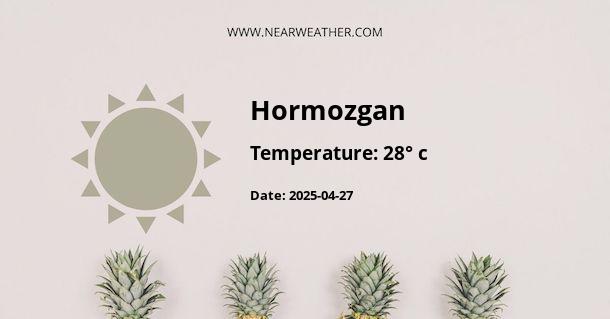Overview of Ostān-e Hormozgān, IR
Ostān-e Hormozgān, also known as Hormozgan Province, is situated in the south of Iran, along the Persian Gulf. Famous for its long coastline, beautiful beaches, and historical sites, the province is a popular tourist destination. Yet, one of its most distinguishing features is its unique climate and weather patterns. This article delves into detailed meteorological analysis of this fascinating region.
Climate Classification of Ostān-e Hormozgān
According to the Köppen Climate Classification, Ostān-e Hormozgān experiences a hot desert climate, scientifically referred to as 'BWh'. This is characterized by high temperatures throughout the year, and minimal rainfall.
Temperature
In Ostān-e Hormozgān, temperatures can vary significantly depending on the season. The region experiences extreme summer temperatures, with the hottest months being June through September. During this period, average high temperatures can often exceed 40°C (104°F).
"The region experiences extreme summer temperatures, with the hottest months being June through September. During this period, average high temperatures can often exceed 40°C (104°F)."
In contrast, the winter months, particularly December through February, are relatively cooler, with average high temperatures ranging between 22°C (71.6°F) and 25°C (77°F). The lowest temperatures during this time can drop to around 10°C (50°F).
Rainfall and Humidity
The annual rainfall in Ostān-e Hormozgān is significantly low, averaging less than 200mm. The region receives the majority of its rainfall during the winter months, particularly from November to January.
Humidity levels in the region are often high due to its coastal location. The highest levels of humidity are generally recorded during the winter months, with averages exceeding 70%. During the hot summer months, the humidity levels can drop to around 50%.
Wind Patterns
Ostān-e Hormozgān experiences strong wind patterns, particularly during the summer months. These winds, known as 'Shamal' winds, originate from the north and can reach high speeds. They often lead to dust storms, which can significantly reduce visibility. On the other hand, during the winter months, the winds are generally lighter and come from the south.
Implications of the Climate
The climate of Ostān-e Hormozgān has significant implications for its residents and visitors. The extreme summer heat can make outdoor activities challenging during this period. Additionally, the high humidity levels can contribute to a feeling of discomfort, especially during the warmer months. However, the winter months offer a more pleasant climate for outdoor activities, making it a popular time for tourism.
Climate Change
Like many regions across the globe, Ostān-e Hormozgān is not impervious to the impacts of climate change. Rising temperatures, changing rainfall patterns, and increasing frequency of extreme weather events are some of the climate change issues that the region is experiencing.
Conclusion
In conclusion, Ostān-e Hormozgān's climate is marked by high temperatures, low rainfall, high humidity, and strong wind patterns. Understanding these climate characteristics is essential for planning travel, outdoor activities, and even for long-term living.
References
- Peel, M. C., Finlayson, B. L., and McMahon, T. A. (2007). Updated world map of the Köppen-Geiger climate classification. Hydrology and Earth System Sciences Discussions, European Geosciences Union, 4(2), 439-473.
- Iran Meteorological Organization. (2020). Annual Weather Report: Hormozgan Province.
A - Hormozgan's Latitude is 27.750000 & Longitude is 56.500000.
A - Weather in Hormozgan is 25° today.
A - Climate Conditions in Hormozgan shows clear sky today.
A - Humidity in Hormozgan is 30% today.
A - Wind speed in Hormozgan is 9.04 km/h, flowing at 120° wind direction. today.
